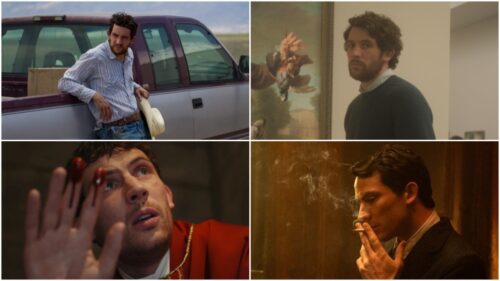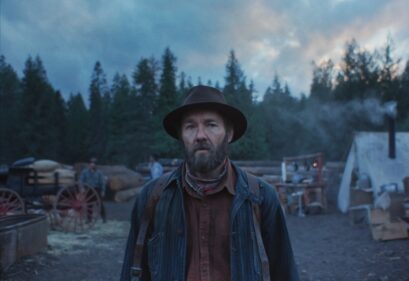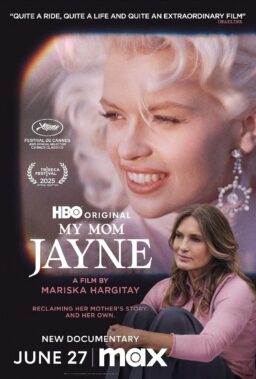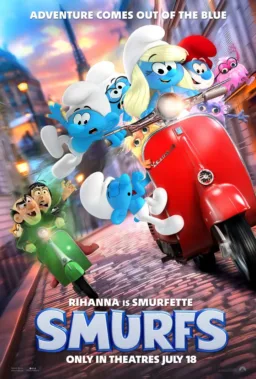NEW YORK I went to the screening of Oliver Stone‘s “Nixon” expecting to see Atilla the Hun in a suit and tie. What I saw surprised me as much as anything this unpredictable director has ever done: a portrait of Richard Nixon that inspired a certain empathy for who he was, how he got to the highest place in the land and how he fell from it. The movie does not apologize, nor does it forgive, but it helps us understand. Oliver Cromwell asked that his portrait be painted “warts and all.” Nixon had more warts than most, but what Stone has done with his portrait may amaze Nixon’s enemies more than his friends.
On the day I spoke with Stone here, he had a bad cold, and seemed tired and quiet. He is usually pugnacious in the defense of his films, but this time, he seemed resigned to whatever reception “Nixon” (opening Wednesday) is destined to receive. After the alarms and exclamations that accompanied “Platoon,” “Wall Street,” “The Doors,” “Born on the Fourth of July” and “JFK” – and the uproar over last year’s “Natural Born Killers” – he can perhaps be excused for a touch of paranoia.
With “Nixon,” the attacks will be aimed at his speculation that the famous 18 1/2-minute gap on the tapes somehow linked Nixon, the Bay of Pigs and the assassination of John F. Kennedy. But Stone, the most assiduous JFK assassination theorist of his generation, doesn’t insist on that interpretation. The gap is there on the tapes, just as there is a gap somewhere within the very being of Richard Milhous Nixon, and it seduces his biographers to fill it with something.
Q. I was surprised by how much empathy you obviously had for Nixon.
Oliver Stone: My father supported him, and as a kid, I rooted for Eisenhower and Nixon in ’52 and ’56. When I returned from Vietnam in ’68, I was supporting him. I was a bit in a twilight zone of my own then, but I supported him because it seemed like he would end the war quickly. But by ’72, like everyone else, I turned against him. The Pentagon Papers came out. They revealed the history of lies, and then Watergate dragged on for two years. So by the time he left, I was really pleased to see Gerald Ford come in as the white knight.
In making the movie, we looked back and we really learned about Nixon, studied him and empathized with the suffering he went through as a young man. His two brothers died and the education he received from his parents was an austere one. All that increases your understanding. There’s no other way to make this movie because you cannot watch a monster for the entire movie. You have to find the cracks in the man. Anthony Hopkins as an actor is a natural: He allows you to look into a man who is dark and nervous and not comfortable with his own skin. Whereas I think the real Richard Nixon would probably not allow you to see into him.
Q. Nixon seems very different from you. How did you find a point of entry?
Stone: Anyone can relate to suffering in this world. And I had a handle on him through my father, who was a businessman, and paralleled Nixon in many ways; he went through the Depression and the war, anti-communism and the collapse of communism. My father hated FDR and he hated Kennedy, so there were a lot of those emotions in the household. Both men had a lot of repressed emotion. There was a pessimism about my dad that I found in Richard Nixon, a social awkwardness, those kinds of things.
Q. You’ve released a thick book of documentation, essays and supporting evidence for the film. Is this a reflex after the attacks on “JFK”? Are you prepared for your critics as they come at you this time?
Stone: Well, actually, we released a book with “JFK,” too. I’m proud of that movie and I think it got misunderstood by a lot of the, let’s say, establishment media, that were attacking it without really reading anything against the Warren Commission. No one reviewed that book. So this time, we were very sure to release the book at the same time as the movie, to show people what we’re doing, trying to be above board. But it is a movie, and once you cross into that conceit, into that idea of an actor wearing makeup and a costume, you have to allow a certain dramatic liberty.
Q. The area that will probably cause the most controversy is Nixon’s involvement with the Cuban connection and whether that turned around and became a starting point for the Kennedy assassination. Do you have any evidence that was the case?
Stone: Quite an interesting set of coincidences led us to this speculation. The chief one, of course, is the mention of the Bay of Pigs on the tapes. On the June 20th tape, there are several references to it, and there’s an 18-minute erasure around that area. And on the June 23rd tape, there are seven or eight mentions of it. So obviously you can look at the Bay of Pigs as what “Rosebud” was to Citizen Kane. It seemed to preoccupy Nixon, and (H.R.) Haldeman later claimed he thought it was a code for the assassination of Kennedy.
I didn’t want to make this into a conspiracy movie, but there is a secret in Richard Nixon. Even his wife mentions that she can’t get past a certain black hole in his soul. The secret was, in a sense, the McGuffin (Alfred Hitchcock’s term for whatever sparks the action of a film’s plot but eventually is revealed to be irrelevant).
You can make some assumptions, though. Nixon was, of course, very involved in Cuba as vice president, and at National Security Council meetings, used language that is very coincidental with the assassination attempt on Castro that was going on at the same time. He called for “highly dramatic” changes in our approach to Cuba five days after (CIA chief) Allen Dulles signed a warrant to assassinate Castro. The CIA claims that Nixon didn’t know about it, but of course Nixon would have plausible deniability. That’s the way the CIA works.
Q. You’ve made a lot of films about people who have power, visibility and fame, and then things happen to them because of that. It’s as if underneath every Oliver Stone movie is the question of how people handle power and whether it destroys them.
Stone: Someone asked me the other day, “What are the similarities that you see between Jim Morrison and Richard Nixon?” It was a strange question. I said they’re somewhat alike; both were shy and awkward privately, and yet great exhibitionists in their own way. Morrison ultimately staged that fiasco in Miami on the stage (where he exposed himself), and Nixon, tie and suit and all, was the greatest exhibitionist of all, letting his secret tapes get out and revealing his innermost self. It was an act of public humiliation on the grandest scale, and he needed it, I think, in a strange way. Some people need the sense of punishment, the sense of catharsis.
Nixon identified himself as a crisis-laden man. He’d reach levels of victory and then he’d plunge into defeat. He was vice president, then he lost to Kennedy, then he lost the California governorship. Then came a great comeback and then he blew it again – and the next comeback, after he lost the presidency. He was a man who needed the feeling of walking the precipice.
Q. One of the film’s most fascinating elements is Pat Nixon, and Joan Allen’s performance is wonderful. It’s a Pat Nixon I didn’t expect. She is clear-eyed; she sees him, she knows what she’s dealing with, and she tells him the truth most of the time. Where did you get the information for this portrait, and how accurate do you feel it is?
Stone: Pat Nixon was called the Mona Lisa of American politics. She never wrote anything. Her interviews tell us nothing. Julie Eisenhower’s book is relatively simple and doesn’t go into any dark side. But we do have a few accounts of people who witnessed things or overheard conversations. We heard about strains in the marriage after the 1960 elections. Talk of divorce. We’ve heard from White House staff of excruciating dinners where they sat there in silence. Often he’d have dinner in his wing and she’d have dinner in her room. We hypothesize from that; we go behind the closed doors. We don’t think Pat was the Barbie doll she seemed. We think there was something going on there.
Q. One of the great scenes is the moment when he looks at the portrait of Kennedy and says, “They look at you and see who they want to be. They look at me and see who they are.” Does Nixon represent the American character to you?
Stone: Gore Vidal said “Nixon is us, we are Nixon.” I think we have to acknowledge that combination of idealism and sleaze; we want to be better than we are, and we sometimes don’t face up to the real questions.
Q. Anthony Hopkins seemed like an unlikely casting choice for Nixon, because he’s Welsh.
Stone: This is an instinct, and you gamble. You gamble millions of dollars, and you go with your gut. Tony I had seen in “Remains of the Day.” His performance was beautiful; it was sad and isolated, melancholic, repressed emotions, very much the same things I felt in Nixon. “Shadowlands,” the same quality. So he comes with a full character; he can bring out the warmth when he has to. He’s handled huge amounts of dialogue. He’s done “King Lear.” He’s played mad men and rulers, and he wouldn’t be intimidated by the nature of this material.
Being a Welshman, he has a poetic naturalness about him. I loved the lilt of his voice. He was able to bridge the gap between the accents, and we gave him just enough of Nixon. We gave him some teeth, some eyes and some hair. At first, we did makeup tests for weeks and weeks and weeks. He was the Elephant Man at one point; his head was twice as big as Joan Allen’s in one screen test. It was a disaster. So we cut it back and on the eve of the shoot, we decided we’re just gonna go with the basics, because he conveyed the feeling of Nixon to us.
Q. The movie made me like Nixon more. Not that affection is the point, but I understood him better. Appreciated him. He opened up China, he ended the war, he got the SALT treaty with the Soviet Union. He did things that no Democrat could have done, and he was destroyed.
Stone: Or he destroyed himself.
Q. Do you think people will be caught off-guard because they might go into a film by you on this subject with a different set of expectations?
Stone: I think it speaks to a sort of national consensus: This is a man, this man suffered, he did wrong and he did right, and we must weigh a life in the balance of that. We must look at the whole. Clinton said more or less the same thing at the funeral, you know: You must judge the life as a whole, he said, not just one Watergate incident. He was right. A life like Nixon’s is filled with shame and filled with glory. He loved to quote Teddy Roosevelt: “He was a man; sometimes right, sometimes wrong, but he was a man.” I love that line.











